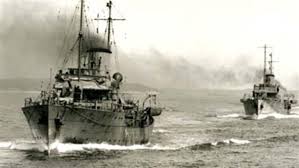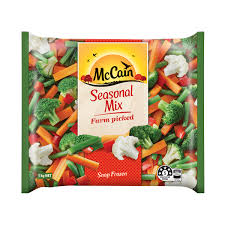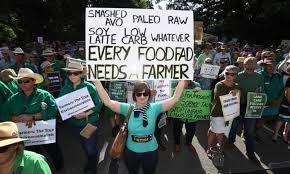
By the end of World War II Britain had amassed an immense debt of £21 billion (£912 billion at 2020 value). Much of this was held in foreign hands, with around £3.4 billion being owed overseas (mainly to creditors in the United States), a sum, which represented around 30 per cent of annual GDP.
Britain settled the last of its World War II debts to the US and Canada in 2006, 75 years after they were incurred.
Due to the pandemic fiscal stimulus Australia’s net debt will increase by a third this year, swelling to roughly $507 billion by the end of June 2020, which is 26 per cent of annual GDP.

“If farming were to be organised like the stock market, a farmer would sell his farm in the morning when it was raining, only to buy it back in the afternoon when the sun came out.” John Maynard Keynes.
Britain was unprepared for War in 1939.
In 1939 the British were totally unprepared for war, just as we are to fight a war against the corona-virus (COVID 19) pandemic of 2020. We are also an island nation like Britain.
It is a revelation to many that we import, mainly from China and America, ninety per cent of the medicines we use. We are dependent on others for our health or, to put it another way, others could make us sick by denying us the medicines we need to stay alive.
In April last year I wrote on this site that we had less than thirty days fuel, petrol, diesel, AV Gas etc in this country, and that includes the ADF reserves. We depend on the Gulf of Hormuz remaining open and we depend on China allowing our tankers in and out of the South China Sea for the majority of our fuels. Nothing has changed, we still have less than a months supply of fuel in this country. 
Life would be difficult without adequate medicines and even more difficult if not impossible with little or no fuel.
It would become damned hard without imported food. It is a nonsense to claim that we are self sufficient in food, because we are not, far from it.
In 2016/17 household food consumption in Australia was $92 billion. By 2050 it is forecast to be $165 billion. A 79% increase in 33 years.
The value of agri-food imports to Australia increased to $18.5 billion in 2017/18, up by $582 million. This was equivalent to 37 per cent of the value of exports. The European Union, New Zealand and the United States account for 56 per cent of our agri-food imports. Those figures contradict with undeniable fact and the monotonous and false claims from politicians and others, that Australia is self sufficient in food.
Food exports.
In 2019–20 export earnings are forecast to be $45 billion, constrained by limited exportable supplies and a decline in international prices. Australian food export are almost entirely what is classified as unimproved or part improved. Our major exports are beef, lamb, sheep meat, wheat, other cereals, wool, lobsters prawns, wine etc.
Improved food are those which go through a process of change, so any increase in home-grown food consumption would have to be food grown and processed in Australia, which is not being grown or produced and processed at present. More importantly if this happened, $45 billion plus of food exports would not be affected.
Britain Declares War.
At the outbreak of World War II, Britain couldn’t defend itself and it couldn’t feed itself. In fact Britain required more than a million tons of imported material per week in order to be able to survive and fight. A million tonnes imported every week to feed and arm 47.5 million people.
Not only had the British Government, against Churchill’s pre-war advice, deliberately run down their military might and allowed Herr Hitler to build Germany into a rampaging military beast; they had allowed Britain to become almost totally dependent on imported food.
The stoic British spirit of World War II, epitomised by the battle cry of ‘Keep Calm and Carry On’ coupled with the uncompromising Churchillian spirit typified by how the British managed the rigours of the air raids, food rationing and many other deprivations of wartime, are now being held up as examples of how we should all behave in this time of the corona-virus pandemic.
It is now obvious that stoicism and calmness under stress is not an inherited trait, otherwise we would not have witnessed our fellow Australians and our British cousins fighting over toilet rolls and food like vultures over carrion. Those images will be with me forever.
Britain in the Doldrums.
British agriculture was in the doldrums in 1939 as it had been since the repeal of the Corn Laws in 1843 by the Conservative Prime Minister, Robert Peel. The Corn Laws were repealed to remove the protection afforded to the wealthy British grain growers from cheap imports from the New World. Peel should be credited with, or blamed for, being the mastermind of the first Free Trade Agreement.
Before the Repeal wheat was traded in Britain for an amazing £1,705 a tonne in today’s pound. The wheat crop in Britain today is being traded for just £188 a tonne. Same wheat, same country but at a price of just over one tenth of what it was 177 years ago.
The Battle of the Atlantic.
Between 1939 and 1944 Britain and her Allies paid a colossal price for Britain’s dependence on others for food and the articles of war.
Hitler, having closed the southern British ports with the Luftwaffe and bombs, attempted to starve Britain into surrender by mounting a colossal naval blockade on the British western ports of Merseyside and the Clyde; and so began the Battle of the Atlantic.
The outcome of that battle was a strategic victory for the Allies—the German blockade failed—but at great cost: 3,500 merchant ships and 175 warships were sunk in the Atlantic for the loss of 783 U-boats and 47 German surface warships, including 4 battleships 9 cruisers, 7 raiders, and 27 destroyers
At the end of the battle 60,000 sailors had died, thirty thousand on each side perished in the cold Atlantic waters. The Battle of the Atlantic was the longest battle of WW II. A terrible toll was paid for a reliance on others for food and arms.
There are alarming similarities between Britain in 1939 and Australia in 2020. We are not in a hot war as Britain was in 1939, but, and it is a big but, just like Britain in 1939, we are not self sufficient in food, nor, coincidentally, are we able to defend ourselves.
After the war Britain’s wartime dependence on imported food continued. As the new Labour government tried to revitalise agricultural production with the catch cry ‘Never Again’. Never again would Britain depend on the rest of the world to feed its people.
The Birth of Subsidised Agriculture.
In 1947 subsidies were introduced and agricultural production in Britain increased. Then in the 1960s, British agriculture prospered due to a major technology revolution with the invention of new machines, crop protection chemicals, high yield cereals and new legume and grass varieties and of course, generous government guaranteed prices —subsidies!

The free market philosophy of the 1980s was dominated by the British Prime Minister Margaret Thatcher and her ally Ronald Reagan, the President of the United States. Reagan and Thatcher, champions of the market economy, both, perversely, supported agricultural subsidies.
During Thatcher’s time in office Britain achieved 90% self-sufficiency in ‘home grown’ foods — that is food that could be grown in the country. Today, that figure is just 76% and quite incredibly 50% of the all the food consumed in Britain today is imported. Complacency has replaced ‘Never Again’ in just fifty years.
So once again Britain is reliant on the rest of the world for half of its food and is ignoring its capacity to be self-sufficient in the foods it can grow at home to feed a population of 64 million, 14 million more than in 1939.
Fifty Years Ago in Australia.
Fifty years ago in Australia we produced just about all the food we needed to feed 12.5 million people and we exported our surpluses. The food we imported was mainly to meet the demands of the ever-increasing diversity of the Australian population.
Over the last fifty years our population has doubled to 25.5 million.
Successive governments have told us that Free Trade Agreements are good for us and that globalisation is the epitome of the modern economy — and we haven’t argued well enough if we have disagreed.
Australia’s plethora of free trade agreements with countries that have lower wages, cheaper power, lower taxes and fewer regulations or red tape than we have in Australia, has made it a lay-down-misere for importers of ‘cheap food’.
The big super-market chains, Coles, Woolworths and IGA are the de facto controllers of Australian agriculture. They have been given free and unfettered rein to scour the world for ‘cheap food’, and in so doing they have kept governments and shoppers happy by keeping the cost of living down — and at the same time they have forced many farmers and food processors out of business as they in turn have watched so-called cheap food flood the Australian market.
We gave the market away to others without a second thought.
Between 1988 and 2019 fruit and vegetable imports into this country have grown from $19 million to over $250 million a year, an increase of 1250%. The majority of those imports, of all things, are frozen vegetable packs. How silly is that, vegetables? Australia grows the best and the cleanest vegetables in the world and we import from places like China.
As the costs of running a food processing business in Australia made many uncompetitive, Australia’s loss has been New Zealand’s gain.
New Zealand has welcomed Australian food processors to their shores, Heinz and McCain to name just two.
Some of those same hitherto Australian companies have taken advantage of the Free Trade Agreement between New Zealand and China and imported vegetables from China to New Zealand. They have then repackaged those Chinese vegetables in New Zealand and then taken advantage of the Free Trade Agreement between Australia and New Zealand and exported them to Australia as ‘Produce of New Zealand from local and imported product’. The ‘local’ NZ content I have verified, might be a few peas or a bit of carrot in a pack of mixed veg.
Those hitherto Australian companies now operating in New Zealand have deliberately worked against the best interests of Australian fruit and vegetable producers.
They and the New Zealand government are running rings around us because while they take domestic markets away from us, we allow the New Zealand dairy industry to export their produce to us, at the same time as our own dairy industry struggles and shrinks. It doesn’t make sense. (Especially when New Zealand never let us win the Bledisloe Cup)
Food imports are Increasing.
We are importing an ever-increasing amount of food into Australia, and in times of crisis, and there will be more crises, like a war, or a shipping embargo on fuel, and when it happens, we could well find ourselves in grave danger of running out of what we have now come to regard as essential foods.
By and large we grow all of the fresh fruit and vegetables that we consume. The same applies to fresh meat. But an examination of the food in aisles of refrigerator cabinets and on the shelves in all supermarkets tells a different story. Australians have a great and increasing appetite for imported foods.
Most of food we import could easily be produced by Australian agriculture, aquaculture, and a home food processing industry. Our future food security is of national importance and we must address the problem now.
This is what strategic thinking is all about; it’s about the future it is not about short-term gain — short-term gains have the awful habit of becoming long-term problems.
By reducing food imports a properly structured Australian agriculture of the future, producing food from paddock to plate, could make a significant contribution towards improving our balance of payments and help pay off the prodigious $507 billion debt we will have incurred by the end of this pandemic.
These Figures May Shock You.
The latest figures show that we imported into Australia over $18 billion of food products last year. If food consumption in this country does grow by the forecast 79%, and if nothing changes in the balance, Australia will be importing food to value of $39 billion by 2050.
A few examples of what food we import. It is an incomplete list.
- Last year Australia imported $2.1 billion of ‘other food preparations’ I can’t find what is in that category, but we know it is food. Have a wander round the shelves in the supermarket and look at the labels. I have found imported tinned fruit and bottled peaches from Bulgaria. Potato chips in packets and frozen. Frozen mashed potato from Holland at the same price as fresh potatoes. Salt from Pakistan for goodness sake, the anomalous list is endless.
- Last year we imported $800 million dollars worth of pig meat. Eighty per cent of all the pig meat we consume is imported. The other 20% is fresh pork and a bit of bacon.
- I find it hard to believe in the land of the best wheat in the world we imported biscuits, cakes and pastries to the value of $1.017 billion some from New Zealand, Indonesia, America and the EU.
- We imported cheese worth $690 million and we have a struggling dairy industry and we make very good cheeses.
- We can and do grow coffee but our imports were valued at $639 million and we spent the same amount on cocoa preparations and chocolate.
- We imported a staggering $830 million, on of all things, wine and we exported the same amount.
- Spirits and liqueurs cost us another $916 million. Beer put the figure well over $1 billion a year.
- To add insult to injury, surrounded by oceans we imported fish worth $2 billion in 2017. Seventy per cent of the fish we eat is imported a lot of it from New Zealand, Viet Nam and Thailand.
That lot comes to close on $10.0 billion that we are spending on food imports and the list is far from complete because there is another $8 billion of food imports out there somewhere.
The majority of the $18 billion we spend on food imports could be produced and processed right here in Australia and our food exports wouldn’t affected.
Remember these are declared import values. Add on the wholesale margin and then the retail margin and you can more than triple the value. Just imagine what another $40 or $50 billion of activity would do for the economy of the regions. People employed at every stage in the production, growing, packing, processing, transporting and marketing. People employed in the regions where the food is produced. Selling Australian food in the cities to Australians.
There is no doubt that Australian food producers could once again produce and process all the food that is needed to feed the current and future population of Australia. Whether the Australian government and the people have the will, fortitude, money and commitment to the secure the future food independence of this nation remains to be seen.
I think the Millennials and the Gen Z are not inclined to plan for their future let alone the future of this fine country. They have more interest in their smart phone than they have in politics and agriculture. The few who follow the extreme views of the loudest in our society appear to have little interest in where their food comes from so long as it is there when they want it. It would appear that no matter how often agriculture claims it is forgotten — nobody listens.
Postscript.
Paul Keating and Bob Hawke were in fact Thatcherites. They believed in the free market economy and during their tenure we saw economic liberalism and social democracy introduced into Australia. They sold off the Commonwealth Bank, floated the dollar, liberalised trade policy and pursued Thatcherite market reforms, none of which did Australian agriculture any good. Hawke and Keating believed in a level playing field for Australia while the rest of the world only paid lip service to it, the perfect example is agricultural subsidies. Every major country from whom we buy food, subsidises their farmers to produce that food.
The big difference between Thatcher, Hawke and Keating was how they dealt with the unions. Thatcher used a hammer whereas Hawke used persuasion some might say, Vaseline —but they both got there in the end.





Excellent Roger. You should send this to every politician , particularly Federal, in an attempt to stir them from their complacency.
There is probably an opportunity now to hit a nerve which won’t come round again for a while.
When this is over we will no doubt be back to party politics again; as you have highlighted, we have short memories, particularly when it comes to saving, or making, a buck.
Good idea Allan, I’ll send it to A Hastie, he is always flying the national flag and is wary of China.